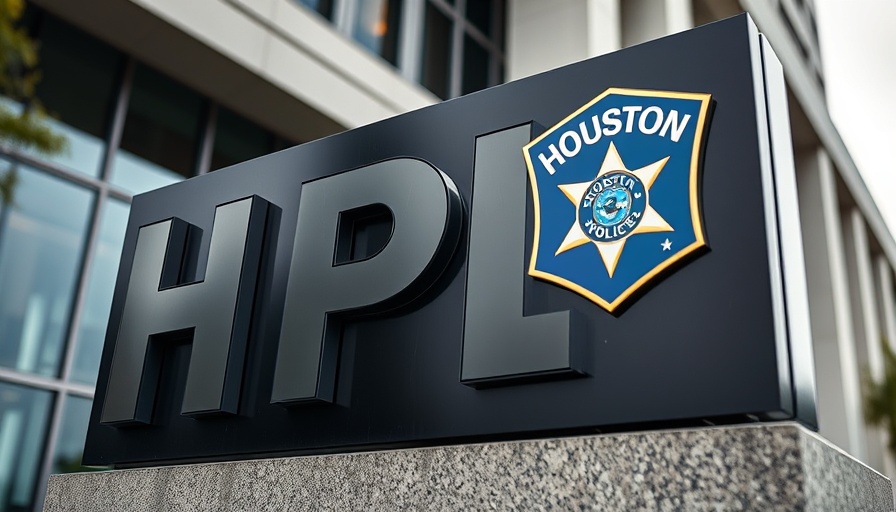
Houston's Police Pay Raise: A Historic Change
This week, the Houston City Council made a crucial decision, unanimously approving a groundbreaking five-year contract with the Houston police union. The contract promises a remarkable 36.5% pay raise for over 5,200 officers, a decision hailed as 'monumental' by city leaders. In the backdrop of rising civilian populations and increasing demands on police forces, this contract aims to boost officer morale, alleviate staffing shortages, and enhance recruitment efforts.
Why Now? The Context Behind the Pay Raise
Mayor John Whitmire emphasized the urgent need for change during the council meeting, noting that Houstonians are ready for progress. The city's population has been growing rapidly, coupled with rising crime rates and community concerns over police efficacy. This salary increase is expected to directly address these issues by attracting new talents to the force while retaining experienced officers.
Implications for the Houston Community
The implications of this decision stretch far beyond the police department. With the improved compensation, the city anticipates enhanced policing services that could foster better relationships between law enforcement and community members. Studies suggest that better-paid officers tend to deliver higher-quality service, resulting in lower crime rates and improved public safety perception.
Understanding the Economic Impact
Financially, some citizens express concern regarding the sustainability of such salary increases amidst budgetary constraints. While higher spending on police salaries may initially seem burdensome, proponents argue that investing in law enforcement ultimately leads to safer communities, which can positively impact local businesses and attract new residents.
A Comparison with Other Cities
Looking at the bigger picture, Houston's pay raise initiative aligns with trends in other major U.S. cities, such as Los Angeles and Chicago, which have also enacted similar measures in response to community demands for enhanced policing quality. However, critics in these cities have pointed out that salary raises alone do not address systemic issues within law enforcement practices, urging a more holistic approach to community safety.
Potential Challenges Ahead
Despite the optimism surrounding this contract, several challenges loom. Effective implementation will depend on how the police department reallocates resources to ensure that the benefits of increased salaries translate into tangible improvements in service delivery. Additionally, some skepticism remains around whether increased pay will truly motivate officers to improve their community engagement practices.
Looking to the Future
As Houston embarks on this new chapter, the city must remain vigilant—not only in monitoring the extent of improvements in law enforcement but also in addressing the public's holistic safety needs. In the coming years, it will be crucial to assess whether the pay raise results in sustainable changes that positively impact both officers and the community at large.
The Call for Community Engagement
As Houstonians await the results of this transformative change, community engagement remains essential. City leaders encourage residents to actively participate in discussions about policing, public safety, and community needs. Such engagement helps ensure that the changes made within the police department resonate with the citizens they serve. To get involved and make your voice heard, consider attending upcoming city council meetings or participating in local forums on public safety.
In conclusion, while the approved pay raise for Houston police officers signifies a pivotal change toward better policing practices, it represents only a part of the larger conversation about community safety and effective law enforcement. Houston's path forward will depend significantly on continued collaboration between law enforcement, city officials, and the community.
 Add Element
Add Element  Add Row
Add Row 



Write A Comment